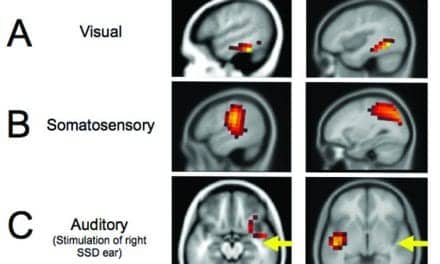As children across the US prepare to get back to school, the American Academy of Audiology (AAA) recommends that parents and teachers pay close attention to children’s hearing ability. Education is primarily delivered through auditory input and even a mild hearing loss can impact a child’s success in school. Children with untreated hearing loss use more cognitive energy to understand what is being said or may appear to not be paying attention because they are missing what was said. A drop in academic performance could be a sign of hearing loss. According to the National Institutes of Health’s National Institute on Deafness and Other Communication Disorders (NIDCD), about two to three out of every 1,000 children in the United States are born with a detectable level of hearing loss in one or both ears. The total number of children with some type of hearing loss is unknown and many cases may go undiagnosed.

While most infants’ hearing is tested within hours of birth, hearing loss can be progressive and start in early childhood. In addition, ear infections and exposure to loud sounds as well as various illness can cause hearing loss. The AAA recommends that any parents concerned with an otherwise unexplained decline in their children’s school performance or any sign of hearing loss should take them to an audiologist to have their hearing tested.
“Because children often don’t realize they are missing information and may not communicate hearing difficulties, issues with auditory accessibility may go undetected,” said Sarah Sydlowski, AuD, PhD, MBA, president of the American Academy of Audiology. Sydlowski is also audiology director of the Hearing Implant Program and associate chief improvement officer at the Cleveland Clinic.
“A child with minimal hearing loss may be missing a significant amount of the classroom discussion,” said Sydlowski. “Unfortunately, we continue to see children identified as having a learning disability when they actually have untreated hearing loss. Hearing loss should always be ruled out when there are academic and speech and language issues. We want to treat the hearing loss first since untreated hearing loss can disrupt all aspects of educational success.”
Lack of hearing can lead to behavioral issues, lack of focus, and even depression in children. Children with hearing loss often don’t recognize that they can’t hear and parents may not know the signs.
Here are some of the signs parents and teachers should look for:
- Child has difficulty following through with assignments and often doesn’t seem to understand the task.
- Child often doesn’t understand questions and either does not respond or doesn’t respond appropriately.
- Child’s speech is different from other children the same age. He/she may struggle to pronounce simple words or is unable to repeat a phrase. May have problems articulating or may have language delays.
- Child often asks you to repeat things or watches your face intently trying to understand what you’re saying.
- Child has difficulty hearing on the phone.
- Child speaks loudly when not warranted.
- Child has chronic ear pain.
- Child often complains of noises he/she cannot identify.
- Child cannot keep up academically.
- Child appears exhausted at the end of the school day (more so than other children.)
- Child may turn up the volume on the computer, headphones or television so that it is louder than normal.
- Child appears to not be paying attention or ignoring people speaking to them.
- Child favors one ear over the other when using the phone, when choosing a seat, or when responding to questions
“Parents and teachers don’t always realize that a child’s behavior may be a sign of hearing loss,” Sydlowski explained. “If parents suspect an issue, they should have their child evaluated by an audiologist. Audiologists have the tools and training to identify hearing loss, degrees of hearing loss, and can recommend solutions for children of any age.”
The American Academy of Audiology provides a list of licensed audiologists on its website: www.audiology.org.
Source: AAA





